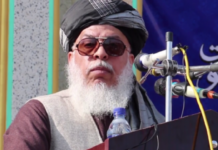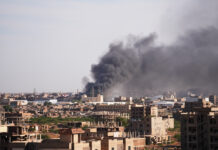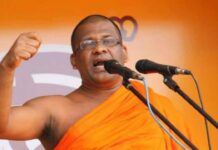President Islam Karimov of Uzbekistan who was responsible for gross human rights abuses and the persecution of Muslims under the banner of preventing “Islamic fundamentalism” has died.
The funeral of Karimov took place earlier today in Samarkand.
Karimov ruled the country for 27 years but after suffering a stroke earlier this week his death was publicly announced on Friday.
Thousands lined the streets of the capital, Tashkent, to throw flowers as his cortege passed on its way to Karimov’s home city of Samarkand.
Three days of mourning are being observed.
There is uncertainty about who will succeed Karimov but the most likely prospect is Prime Minister Shavkat Mirziyoyev who has been in office since 2003.
Secular dictator
Subscribe to our newsletter and stay updated on the latest news and updates from around the Muslim world!
Ruling from 1989, Karimov took the reigns of Uzbekistan when it was still part of the Soviet Union.
After the collapse of the Soviet Union in 1991 he became the country’s first newly “independent” president.

Despite being a brutal dictator who boiled critics alive and injected them with HIV, his human rights abuses were ignored by the West because of his fierce secularism and crackdown on influential Islamic groups such as Hizb ut-Tahrir.
Former British Ambassador to Uzbekistan, Craig Murray, has harshly criticised the acceptance of Karimov’s oppressive rule by Western leaders because he believes the former president’s methods of “imprisoning, torturing and killing anybody who appeared religious were viewed as admirable”.
Murray added: “That all reputable sources acknowledge that 10,000 people are imprisoned solely for their political and religious beliefs did not matter. That young men can be imprisoned or “disappeared” solely for growing a beard, or for praying five times a day, was viewed as “effective”.
“The truth is that western governments wished they could do the same thing. The very first words Karimov ever spoke to me were to congratulate me on the fact that Blair had just instituted detention without charge for terrorism suspects – a prime example of the effect abroad of western abandonment of civil liberties.”
Andijan massacre
In 2005 Karimov ordered his troops to open fire on thousands of protesters (including women and children) in the city of Andijan, who gathered to decry corruption and the persecution of Muslims.
Though armed dissidents had taken over a military base the night before and ambushed a prison to let some inmates free, Karimov’s reaction was criticised by human rights groups, and at the time, Western powers.
Some reports put the death toll at 1,500 compared to the Uzbek government’s official claim of 187.
Despite imposition of EU sanctions after the massacre, interest in Uzbekistan’s energy reserves allowed for normal relations to resume.
Energy Interests
Lobbying through groups such as the British Uzbek Society and the Uzbek British Trade and Industry Council (UBTIC) has allowed the likes of Exxon Mobil to explore for oil in the central Asian country.
The British Uzbek society has members such as Shirin Akiner who reportedly produced a report absolving Karimov’s regime of any responsibility for the Andijan massacre.
5Pillars contacted the UK Foreign and Commonwealth Office (FCO) to ask a number of questions, including its response to criticisms of Britain turning a blind eye to Karimov’s abuses.
A statement from Foreign Secretary Boris Johnson, issued in Uzbekistan today, was received: “My condolences go to the people of Uzbekistan on the death of President Karimov who led the country since its independence. At this important moment, I hope that the country benefits from a smooth and orderly transition of power that ensures the best possible future for the Uzbek people.”
In addition, the press officer added: “We wouldn’t want to add anything to this at this time.”






















